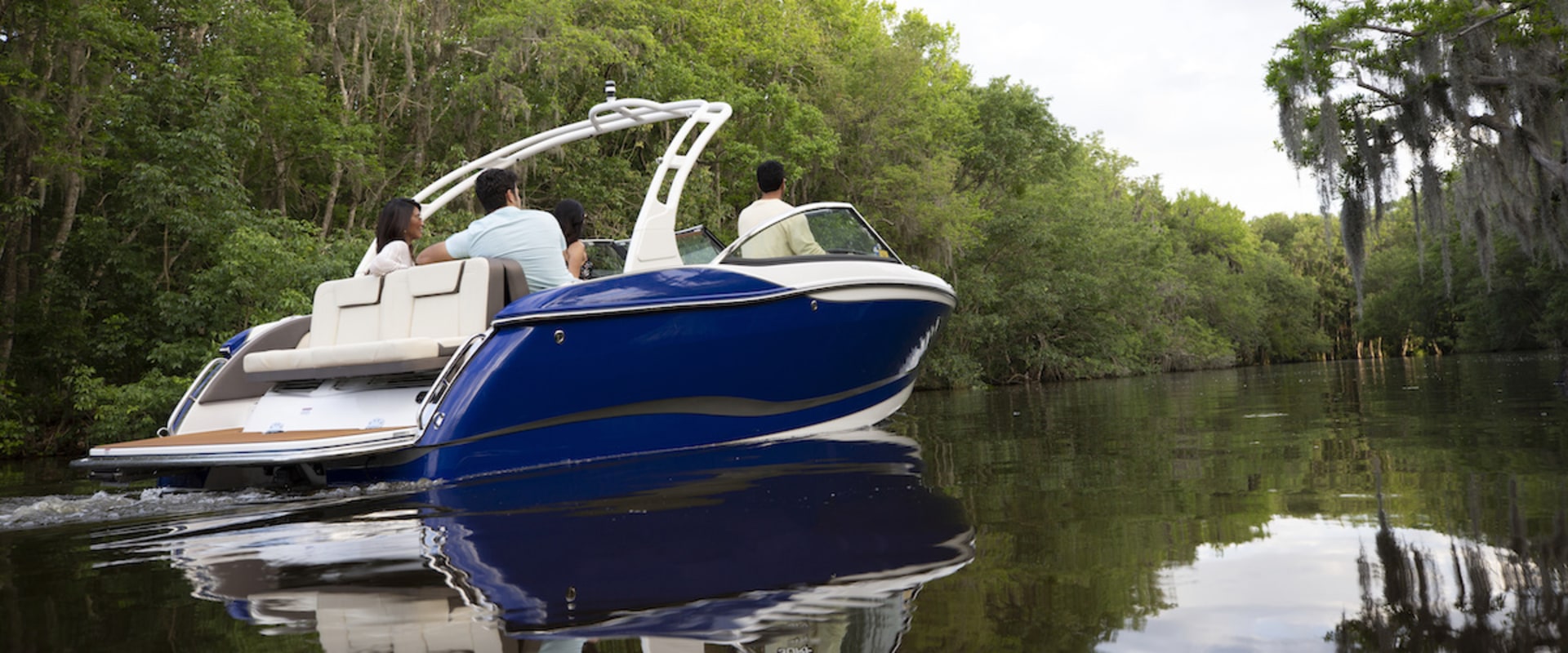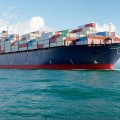When it comes to boat insurance, the type of boat use can have a significant impact on the cost of your policy. Different types of boat uses come with different levels of risk and liability, and this can affect the premiums you pay for your policy. In this article, we'll take a look at the types of boat uses and how they can affect the cost of your boat insurance. From recreational activities like fishing and water sports to commercial operations like tour boats and ferry services, there are a variety of different ways to use a boat.
Each type of boat use has its own set of risks and liabilities, and understanding these risks can help you make an informed decision when it comes to choosing the right insurance coverage for your boat. When it comes to boat insurance, having the right coverage is important to protect your boat in the event of an accident, theft, or other damage. To learn more about boat insurance and how it can protect your vessel, visit www.a1autotransport.com today. But did you know that the Each type of boat use has its own set of risks and liabilities, and understanding these risks can help you make an informed decision when it comes to choosing the right insurance coverage for your boat. When it comes to boat insurance, having the right coverage is important to protect your boat in the event of an accident, theft, or other damage. To learn more about boat insurance and how it can protect your vessel, visit www.a1autotransport.com today. But did you know that the type of boat use you have may also affect how much you have to pay for your boat insurance? Different types of boat uses can have a variety of impacts on the cost of boat insurance, so it's important to understand them before making any decisions. One of the most common types of boat use is recreational.
This is when a boat is used for leisure activities, such as fishing or pleasure cruising. Recreational boats typically require less coverage than other types of boats because they are less likely to be involved in accidents or thefts. However, they still need to be adequately protected in case something does happen. Another type of boat use is commercial.
This includes boats used for business purposes, such as chartering or transporting goods. Commercial boats usually require more coverage than recreational boats because they are more likely to be involved in accidents or thefts. Additionally, they are often subject to more regulations and laws than recreational boats, so it's important to make sure your coverage is up-to-date with all applicable laws and regulations. Finally, there is racing.
This type of boat use involves using a boat for competitive racing events. Racing boats usually require a more specialized form of coverage due to the increased risk associated with this type of activity. Additionally, these boats may be subject to additional regulations or laws depending on the type of race and the location where it takes place. When it comes to finding the right boat insurance for your needs, it's important to consider all of these factors. Make sure you understand what type of boat use you have and what kind of coverage is necessary for that use.
Additionally, look into any discounts or incentives that may be available for certain types of boat uses. Doing your research ahead of time will help ensure you get the right coverage for your specific needs and that you are not paying more than necessary. Having the right type of coverage for your specific type of boat use can make a big difference when it comes to the cost of your boat insurance. Understanding different types of boat uses and how they may affect the cost of boat insurance can help you make an informed decision when it comes to selecting the right policy for your needs.
Racing Boats
Racing boats are specifically designed for the purpose of competitive racing. While these boats may look similar to recreational boats, they have different features that make them better suited to competitive racing.Racing boats are typically higher-performance boats, and as such, they tend to be more expensive to insure. Due to their higher-performance capabilities, racing boats tend to be more prone to accidents and other types of damage. Consequently, insurers may charge higher premiums for racing boat insurance due to the increased risk associated with insuring a racing boat. Factors such as the type of boat, the age of the boat, and the driver’s experience will all impact the cost of insurance. Examples of racing boats include powerboats, sailboats, rowing boats, and dragon boats.
Powerboats are typically used in offshore racing, while sailboats can be used in both inshore and offshore races. Rowing boats are usually used in flat-water races such as rowing regattas. Dragon boats are popular in Asia and often feature teams of up to 20 paddlers.
Commercial Boating
Commercial boating is the use of boats for business or profit-making purposes. This includes ferry services, fishing, and other commercial activities that make use of boats.Commercial boating activities require more expensive boat insurance policies due to the increased risk of loss. The additional cost of boat insurance for commercial purposes will depend on the type of business activity, the number of passengers or cargo being carried, and the size of the boat. For example, ferry services require higher insurance rates because they often carry a high number of passengers. Fishing vessels may also need special insurance coverage if they operate in hazardous areas such as near rocks or reefs. Larger boats or vessels carrying high-value cargo may also require higher insurance premiums. In addition to the type of activity, insurance companies may also consider other factors such as the age of the vessel, safety equipment, and other safety measures when determining the cost of insurance for commercial purposes.
Boat owners must be aware of all these factors before choosing an insurance policy.
Recreational Boating
Recreational boating is the use of a boat for leisure activities, such as fishing, swimming, and water sports. It is a popular way to enjoy the outdoors and can be an enjoyable way to spend time with family and friends. However, recreational boating can also have an impact on the cost of boat insurance. Insurance companies will take into account the type of boat being used and what type of activities it will be used for when determining the cost of your policy.If you plan to use your boat for recreational activities, you may be required to pay a higher premium than if you were using it for more basic activities, such as transport or utility. Some recreational activities that may increase the cost of your policy include skiing, wakeboarding, tubing, and fishing. It is important to consider the type of recreational activities you will be participating in when purchasing boat insurance. Depending on the level of risk involved with each activity, the cost of your policy may increase significantly.
For example, if you plan to fish in a remote area, you may have to pay more for coverage that includes fishing-specific risks. Similarly, if you plan to do any water sports like wakeboarding or tubing, you may need to purchase additional coverage for these activities. When considering the types of boat use and their impact on boat insurance costs, it is important to remember that each activity carries its own risks. While some activities may be more costly to insure than others, having the right coverage can help provide peace of mind when out on the water. Knowing that your boat is protected from any potential damage or theft can help ensure that you are able to enjoy your time out on the water without worry. In conclusion, the type of boat use you have can greatly affect the cost of your boat insurance.
Recreational boating, commercial boating, and racing boats each bring their own unique risks and rewards. It’s important to understand all the different types of boat uses and make sure you have the right coverage for your specific needs. Be sure to research different providers and take advantage of any discounts or incentives available to help lower your boat insurance costs.







